Association to Preserve Cape Cod Executive Director Andrew Gottlieb said Holtec just last week filed for state and federal permits to authorize the discharge of an estimated 1.1 million gallons of radioactive water into the bay as part of the plant’s decommissioning process. The organization has submitted a detailed legal analysis to the administration arguing that “the only legal option available to the state is to deny the permit application.”
Association to Preserve Cape Cod Executive Director Andrew Gottlieb photographed beside Waquoit Bay off Seconsett Island Road in Mashpee. Steve Heaslip
“The core of our legal argument there is the Ocean Sanctuaries Act,” he said.
The act, according to the Massachusetts Office of Coastal Zone Management , establishes five ocean sanctuaries in state waters, defines prohibited and allowed activities in these areas, and requires the Executive Office of Energy and Environmental Affairs and its agencies “to protect the ocean sanctuaries from exploitation, development, or activities that would significantly alter or otherwise endanger their ecology or appearance.”
Specifically, the association argues, the proposed radioactive wastewater release is not permittable because it was not preexisting when the Cape Cod Bay ocean sanctuary was designated in 1971.
“Because the water proposed to be discharged is related to the decommissioning process and would occur after Pilgrim ceased its operations and associated discharges, the proposed new discharge cannot be considered ‘operation and maintenance’ of an active power generation facility and therefore must be viewed as a new industrial discharge,” according to the association. “According to the (Ocean Sanctuaries Act), a new discharge cannot be authorized by any state agency, regardless of the separate policies of the federal Nuclear Regulatory Commission .”
“It’s just, as a matter of law, not allowed,” said Gottlieb.
The association thinks the administration would be well within its rights simply to notify the company that a discharge is not allowed by state statute, he said, “so we don’t go through this long, drawn out, expensive process only for them (Holtec) to be told ‘no.'”
Gottlieb said there are many good reasons not to allow radioactive wastewater, even if it is low level, to be released, notably Cape Cod Bay is a habitat for critically endangered North Atlantic right whales and also for lobsters and shellfish that are integral parts of the coastal and state economy.
According to the World Nuclear Association , “most low-level radioactive waste is typically sent to land-based disposal immediately following its packaging for long-term management.” Sometimes it may be disposed of in deep waters, but the federal Environmental Protection Agency strictly regulates it through the Marine Protection, Research and Sanctuaries Act. Dumping of high-level radioactive wastes is prohibited worldwide.
Gottlieb said discharging low-level wastewater into deep water is one thing, but “Cape Cod Bay is a shallow, recirculating, closed-loop system.”
The association’s request for the state to invoke its Ocean Sanctuaries Act was made in a letter to Energy and Environmental Affairs Secretary Rebecca Tepper and Lisa Berry Engler, director of the Office of Coastal Zone Management. The argument was drafted on the association’s behalf by Sugarman, Rogers, Barshak & Cohen, P.C.
In this May 2022 photo, U.S. Rep. William Keating, left, and U.S. Senator Edward Markey listen to testimony from John Lubinski, director, Office of Nuclear Material and Safety Safeguards for the NRC in Plymouth Town Hall. Markey conducted a field hearing on issues facing communities with decommissioning nuclear plants Steve Heaslip/Cape Cod Times
According to the association, the letter “further requested the Office of Coastal Zone Management to advise the Massachusetts Department of Environmental Protection that its issuance to Holtec of any state permit, authorization, or approval for a discharge would be inconsistent with the (Ocean Sanctuaries Act).”
“APCC has laid out a detailed legal analysis to the Healey administration clearly demonstrating that the proposed Holtec discharge of water to Cape Cod Bay is illegal under the state Ocean Sanctuaries Act,” said Gottlieb in a formal statement. “Our analysis shows this prohibition to be based in a clear and plain reading of the law and does not require proof of harm to be enforced.”
The organization, he said, “has demonstrated to the Healey administration that it not only has the ability, but also the obligation, to deny Holtec’s permit application. We trust that the administration will fulfill its commitment to block this proposed abuse of Cape Cod Bay and place this distraction aside so that the serious work of completing decommissioning can proceed.”
Members of the Cape’s legislative delegation agree with the organization’s effort.
“Cape Codders, Islanders, and people across southeastern Massachusetts are dedicated to protecting our waters —that’s why we have continuously pushed back against the proposed release of radioactive industrial water into Cape Cod Bay,” said state Sen. Julian Cyr, D-Truro, in a release. “I am grateful to the Association to Preserve Cape Cod for their engagement on this alarming threat to our environment and coastal economy. APCC’s analysis of the 1971 Ocean Sanctuaries Act presents a strong argument against the legality of Holtec’s proposed wastewater release during the Pilgrim Nuclear Power Station’s decommissioning process. I urge the administration to consider APCC’s thoughtful analysis.”
State Sen. Susan Moran, D-Falmouth, and state Rep. Sarah Peake, D-Provincetown, are on the same page.
For more information about the walk, visit https://tinyurl.com/mkvpd2xt or email saveourbaymainfo@gmail.com.
Heather McCarron writes about climate change, environment, energy, science and the natural world, in addition to news and features in Barnstable, Brewster and Falmouth Reach her at hmccarron@capecodonline.com, or follow her on Twitter @HMcCarron_CCT
APCC urges Healey to enforce Ocean Sanctuaries Act to block Holtec dumping – Cape Cod Times – April 14, 2023

